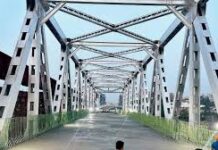The reopening of the Gokhale Bridge marks a pivotal moment for Andheri, restoring a crucial east-west artery after years of civic paralysis and commuter distress. Its inauguration in May 2025 is being hailed not merely as an infrastructural revival but as a progressive step towards a more sustainable and equitable urban framework. The new design moves beyond its predecessor’s utility, embedding features that prioritise ecological sensitivity and inclusive mobility for Mumbai’s residents.
The bridge’s prolonged closure since its partial collapse in 2018 inflicted deep economic and social scars on the suburb. Daily commutes transformed into gruelling journeys, disproportionately affecting citizens reliant on public transport and straining household budgets with increased travel costs. The gridlock on alternative routes like the JVLR and Milan Subway became a symbol of fractured urban planning, leading to a significant rise in localised carbon emissions from idling vehicles and immeasurable loss of productive hours.
In a significant shift from traditional infrastructure projects, the reconstructed Gokhale Bridge has been reimagined as a piece of inclusive social architecture. The design incorporates significantly wider and better-illuminated pedestrian walkways, creating safer passages for all, particularly women and children, thereby fostering gender-equitable access to mobility around the clock. This focus on pedestrian safety and accessibility signals a commitment to building a city that serves its people first, viewing infrastructure through a lens of human well-being rather than just vehicular throughput.
The structure’s reopening promises more than just convenience; it is a catalyst for urban renewal. By easing congestion, the bridge will directly contribute to reducing Andheri’s carbon footprint. Furthermore, discussions around integrating dedicated cycling lanes in the future align with a global push for greener, healthier cities. The Gokhale Bridge, therefore, stands as a powerful statement—a testament that Mumbai can build infrastructure that not only connects places but also advances the critical goals of environmental sustainability and social equity for a resilient future.
Also Read: Gadkari Proposes 30 km Delhi–Gurugram Underground Tunnel, Cutting Commute to 15 Minutes



